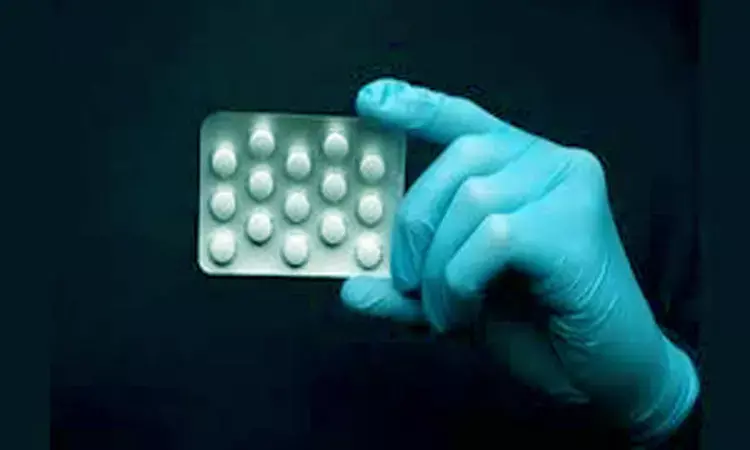- Home
- Medical news & Guidelines
- Anesthesiology
- Cardiology and CTVS
- Critical Care
- Dentistry
- Dermatology
- Diabetes and Endocrinology
- ENT
- Gastroenterology
- Medicine
- Nephrology
- Neurology
- Obstretics-Gynaecology
- Oncology
- Ophthalmology
- Orthopaedics
- Pediatrics-Neonatology
- Psychiatry
- Pulmonology
- Radiology
- Surgery
- Urology
- Laboratory Medicine
- Diet
- Nursing
- Paramedical
- Physiotherapy
- Health news
- Fact Check
- Bone Health Fact Check
- Brain Health Fact Check
- Cancer Related Fact Check
- Child Care Fact Check
- Dental and oral health fact check
- Diabetes and metabolic health fact check
- Diet and Nutrition Fact Check
- Eye and ENT Care Fact Check
- Fitness fact check
- Gut health fact check
- Heart health fact check
- Kidney health fact check
- Medical education fact check
- Men's health fact check
- Respiratory fact check
- Skin and hair care fact check
- Vaccine and Immunization fact check
- Women's health fact check
- AYUSH
- State News
- Andaman and Nicobar Islands
- Andhra Pradesh
- Arunachal Pradesh
- Assam
- Bihar
- Chandigarh
- Chattisgarh
- Dadra and Nagar Haveli
- Daman and Diu
- Delhi
- Goa
- Gujarat
- Haryana
- Himachal Pradesh
- Jammu & Kashmir
- Jharkhand
- Karnataka
- Kerala
- Ladakh
- Lakshadweep
- Madhya Pradesh
- Maharashtra
- Manipur
- Meghalaya
- Mizoram
- Nagaland
- Odisha
- Puducherry
- Punjab
- Rajasthan
- Sikkim
- Tamil Nadu
- Telangana
- Tripura
- Uttar Pradesh
- Uttrakhand
- West Bengal
- Medical Education
- Industry
New test method can offer safer dosages of hydroxychloroquine in SLE

Researchers have developed a new method to measure levels of the anti-malarial drug hydroxychloroquine (HCQ) in patients with the rheumatic disease systemic lupus erythematosus (SLE).The analysis method may also be useful in other areas, such as in the treatment of COVID-19. The study is being published in Arthritis Research and Therapy.
The side effects of hydroxychloroquine can be avoided if the dosage is adjusted for each patient.
Hydroxychloroquine was originally used to treat malaria but has also proven effective with SLE and rheumatoid arthritis (RA). Today it is recommended to all SLE patients since it protects against flares of the disease. Tests are now being conducted to see if it can also be used to treat COVID-19.
To achieve the protective effect against flares in SLE while also minimising the risk of side effects, Uppsala researchers have now developed a method that can be used in the medical care system to measure hydroxychloroquine levels in the blood of SLE patients. The method is based on high-resolution mass spectrometry and has been used at Uppsala University Hospital since December 2019.
First, the researchers went through available data on hydroxychloroquine measurements. They saw that results from measurements on whole blood, plasma and serum were not comparable with each other.
"It was shown that there were major differences between different reports, and there seemed to be very large individual differences," says Kim Kultima, Associate Professor at the Department of Medical Sciences at Uppsala University and also active at Clinical Chemistry and Pharmacology at Uppsala University Hospital.
For this reason, his research team conducted a study together with the research team in rheumatology that compared the levels of hydroxychloroquine in plasma, serum and whole blood in SLE patients. They concluded that the levels in whole blood were about twice as high as in serum and plasma. Whole blood analyses were also the most dependable.
"One striking result, and a very important insight, was that levels in whole blood for patients prescribed the same dosage could differ by up to 15 times between individuals. This indicates a large individual variation in how the medication is metabolised."
One problem pointed out by the study is that the services for electronic information on medicinal products in Sweden (FASS) provides concentrations of hydroxychloroquine in plasma. The researchers judge that these values provide an inaccurate and inappropriate picture for monitoring medication levels in patients.
"We also have to be very careful about drawing hasty conclusions about whether hydroxychloroquine is effective with COVID-19. What we know today is that the analysis method will hopefully lead to better data for providing the right dosages to SLE patients who are prescribed the medication."
In collaboration with doctors at the Infectious Disease Clinic and within intensive care at Uppsala University Hospital, there are plans and preparations in place to be able to measure the levels of the medication in the blood of COVID-19 patients if the substance proves effective.
For more details click on the link: http://dx.doi.org/10.1186/s13075-020-02211-1
Hina Zahid Joined Medical Dialogue in 2017 with a passion to work as a Reporter. She coordinates with various national and international journals and association and covers all the stories related to Medical guidelines, Medical Journals, rare medical surgeries as well as all the updates in the medical field. Email: editorial@medicaldialogues.in. Contact no. 011-43720751
Dr Kamal Kant Kohli-MBBS, DTCD- a chest specialist with more than 30 years of practice and a flair for writing clinical articles, Dr Kamal Kant Kohli joined Medical Dialogues as a Chief Editor of Medical News. Besides writing articles, as an editor, he proofreads and verifies all the medical content published on Medical Dialogues including those coming from journals, studies,medical conferences,guidelines etc. Email: drkohli@medicaldialogues.in. Contact no. 011-43720751


